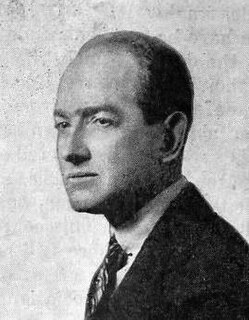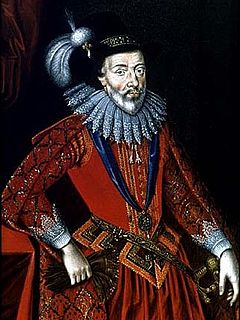
The Oxfordian theory of Shakespeare authorship contends that Edward de Vere, 17th Earl of Oxford, wrote the plays and poems of William Shakespeare. While historians and literary scholars overwhelmingly reject alternative authorship candidates, including Oxford, public interest in the Oxfordian theory continues. Since the 1920s, the Oxfordian theory has been the most popular alternative Shakespeare authorship theory.

Irvin Leigh Matus was an independent scholar, autodidact, and author. He is best known as an authority on Shakespeare, but also wrote about aspects of Brooklyn's history such as the Vitagraph Studios, and developed a method of modelling baseball statistics. He was a scholar-in-residence at Shepherd University for the academic year 1992-1993. He was based in Washington, DC.

John Thomas Looney (luni) was an English school teacher who is notable for having originated the Oxfordian theory, which claims that Edward de Vere, 17th Earl of Oxford (1550–1604) was the true author of Shakespeare's plays.
Charlton Ogburn Jr. was an American writer, most notably of memoirs and non-fiction works. Before he established himself as a writer he served in the US army, and then as a State Department official, specialising in South-East Asian affairs.

Sir Granville George Greenwood, usually known as George Greenwood or G. G. Greenwood, was a British lawyer, politician, cricketer, animal welfare reformer and energetic advocate of the Shakespeare authorship question.

The Prince Tudor theory is a variant of the Oxfordian theory of Shakespeare authorship, which asserts that Edward de Vere, 17th Earl of Oxford, was the true author of the works published under the name of William Shakespeare. The Prince Tudor variant holds that Oxford and Queen Elizabeth I were lovers and had a child who was raised as Henry Wriothesley, 3rd Earl of Southampton. The theory followed earlier arguments that Francis Bacon was a son of the queen. A later version of the theory, known as "Prince Tudor II" states that Oxford was himself a son of the queen, and thus the father of his own half-brother.
Charles Wisner Barrell was an American writer. He first became significant as an art critic, promoting realism. He later built a career as an early exponent of public relations and as a documentary film maker.
The Declaration of Reasonable Doubt is an Internet signing petition which seeks to enlist broad public support for the Shakespeare authorship question to be accepted as a legitimate field of academic inquiry. The petition was presented to William Leahy of Brunel University by the actors Derek Jacobi and Mark Rylance on 8 September 2007 in Chichester, England, after the final matinee of the play I Am Shakespeare on the topic of the bard's identity, featuring Rylance in the title role. As of 23 April 2016, the 400th anniversary of Shakespeare's death and the original self-imposed deadline, the document had been signed by 3,348 people, including 573 self-described current and former academics.

The Ashbourne portrait is one of several portraits that have been falsely identified as portrayals of William Shakespeare. At least 60 such works had been offered for sale to the National Portrait Gallery in the 19th century within the first forty years of its existence; the Ashbourne portrait was one of these. The portrait is now a part of the collection of the Folger Shakespeare Library in Washington, DC.

Note: In compliance with the accepted terminology used within the Shakespeare authorship question, this article uses the term "Stratfordian" to refer to the position that William Shakespeare of Stratford-upon-Avon was the primary author of the plays and poems traditionally attributed to him. The term "anti-Stratfordian" is used to refer to the theory that some other author, or authors, wrote the works.

Charlton Greenwood Ogburn was a lawyer who served as a public official in various capacities from 1917 through to the 1930s. He was employed as legal counsel both for government bureaucracies and labor organizations. His most widely recognized work was undertaken as counsel for the American Federation of Labor in the 1930s.

The De Vere Society is a registered educational charity dedicated to the proposition that Edward de Vere, 17th Earl of Oxford was the author of the works of William Shakespeare. The society accepts there are many alternative views to this proposition and welcomes open debate. It was first registered as a society of Oxford University in 1987.

The Derbyite theory of Shakespeare authorship is the view that William Stanley, 6th Earl of Derby (1561–1642), was the true author of the works of William Shakespeare. Derby is one of several individuals who have been claimed by advocates of the Shakespeare authorship question to be the true author of Shakespeare's works.

The Shakespeare authorship question is the argument that someone other than William Shakespeare of Stratford-upon-Avon wrote the works attributed to him. Anti-Stratfordians—a collective term for adherents of the various alternative-authorship theories—believe that Shakespeare of Stratford was a front to shield the identity of the real author or authors, who for some reason—usually social rank, state security, or gender—did not want or could not accept public credit. Although the idea has attracted much public interest, all but a few Shakespeare scholars and literary historians consider it a fringe theory, and for the most part acknowledge it only to rebut or disparage the claims.
Roger A. Stritmatter is a professor of Humanities at Coppin State University and the former general editor of Brief Chronicles, a delayed open access journal covering the Shakespeare authorship question from 2009 to 2016. He was a founder of the modern Shakespeare Fellowship, an organization that promotes Edward de Vere, 17th Earl of Oxford, as the true author of the works of William Shakespeare. He is one of the leading modern-day advocates of the Oxfordian theory of Shakespeare authorship, and has been called the “first professional Oxfordian scholar”.
Percy Allen (1875–1959) was an English journalist, writer and lecturer most notable for his advocacy of the Oxfordian theory of Shakespeare authorship, and particularly for his creation of Prince Tudor theory, which claimed that the Earl of Oxford fathered a child with Queen Elizabeth I.
Bernard Mordaunt Ward was a British author and third-generation soldier most noted for his support of the Oxfordian theory of Shakespeare authorship and writing the first documentary biography of Edward de Vere, 17th Earl of Oxford.

Lt. Col Montagu William Douglas CSI, CIE. was a British soldier and colonial administrator in India. As the Assistant District Commissioner in the Punjab, he investigated the attempted murder allegation made by Henry Martyn Clark against Mirza Ghulam Ahmad, the founder of the Ahmadiyya movement. Ahmad later declared him to be the "Pilate of our time", superior to the original.











